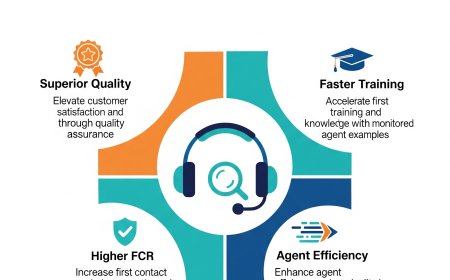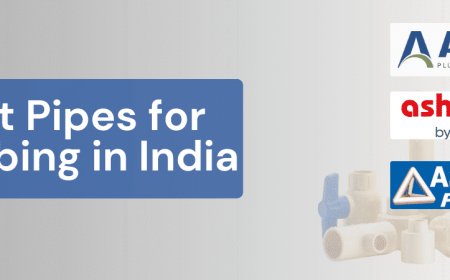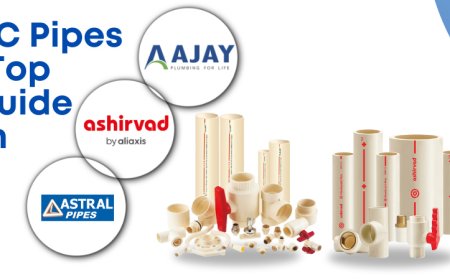Demystifying Capella Assessments: A Student’s Guide to Mastery

Capella University offers a nontraditional, competency-based learning model that emphasizes the real-world application of knowledge. At the center of this model areCapella Assessmentsthe key instruments used to evaluate a students mastery of course content. Rather than relying on timed exams or participation-heavy Capella Assessment, Capellas assessments focus on demonstration of knowledge through structured, practical tasks. This article offers an in-depth look at what Capella Assessments are, how they work, and how students can succeed in them.
What Are Capella Assessments?
Capella Assessments are performance-based tasks designed to evaluate specific competencies in a course. They are aligned with industry standards and learning objectives, requiring students to apply theories and concepts to realistic, often professional, scenarios. These assessments are the primary means of grading in both GuidedPath and FlexPath learning formats.
The format replaces traditional exams with tasks such as research papers, strategic plans, case studies, or presentationschallenging students to think critically, research thoroughly, and communicate effectively.
Core Characteristics of Capella Assessments
Unlike standardized testing, Capella Assessments are intentionally designed with flexibility and depth in mind. Key features include:
-
Real-World Relevance: Tasks often mirror challenges faced in the workplace. Whether its a marketing plan, a healthcare analysis, or a leadership self-assessment, students are required to apply learning in context.
-
Transparent Evaluation: Every assessment includes a rubric that clearly outlines how it will be graded. Students know upfront what is expected to reach each performance level.
-
Academic Rigor: While flexible in scheduling, Capella Assessments are academically demanding. They require proper citation, integration of peer-reviewed sources, and professional formatting.
-
Iterative Improvement: Capella allows for revisions of assessments. If a submission does not meet nurs fpx 4065 assessment 2, students receive feedback and can resubmit, promoting growth through constructive critique.
Assessment Types Across Disciplines
Assessment types can vary based on your field of study, but they share a common emphasis on demonstrating competencies. Examples include:
-
Nursing & Health Care: Case studies on patient care, policy analysis, and treatment plans.
-
Business: Financial analysis reports, marketing strategies, and business communication projects.
-
Education: Curriculum plans, reflection journals, and educational theory applications.
-
Information Technology: System designs, risk assessments, and security policy frameworks.
Each assessment asks students to approach problems as professionals in their field would, thereby reinforcing both academic and career readiness.
The Role of Rubrics in Capella Assessments
Rubrics are essential to understanding and succeeding in Capellas system. These scoring guides break down each assessment into several criteria, each with descriptions for performance levels: Non-Performance, Basic, Proficient, and Distinguished.
For example, a rubric for a leadership development plan might evaluate:
-
Clarity and structure of the plan
-
Integration of leadership theories
-
Use of scholarly references
-
Professional communication
-
APA formatting and citations
To earn a Distinguished score, students must demonstrate not just understanding, but insightful application and clarity.
Success Strategies for Capella Assessments
Succeeding in Capella Assessments requires more than just writing well. It involves preparation, self-discipline, and a deep understanding of expectations.
1. Analyze the Rubric First
Before beginning any assessment, study the rubric closely. Use it to guide your outline and writing process. Make sure you address every criterion and aim for the highest level of performance.
2. Make Use of Resources
Capella offers a host of resources to help students succeed:
-
Capella Writing Center: Offers guidance on nurs fpx 4905 assessment 4, clarity, and APA style.
-
Capella Library: Provides access to peer-reviewed research for credible support.
-
Academic Coaches: Help with time management, pacing, and strategic study planning.
3. Plan Your Time
Even in FlexPaths self-paced model, poor time management can lead to delays. Set goals, break tasks into parts, and stick to a regular schedule. If you're in GuidedPath, be sure to meet deadlines to avoid penalties.
4. Draft and Revise
Dont submit your first draft. Write, reflect, and revise based on the rubric. Consider using Grammarly or similar tools to polish your language before submission.
5. Practice Academic Integrity
Capella takes plagiarism seriously. Always cite your sources and paraphrase responsibly. The use of Turnitin ensures all submissions are original.
Capellas Learning Models and Assessments
Capellas two learning paths both rely on assessments, but how students engage with them differs.
GuidedPath
This model includes structured deadlines, weekly discussions, and instructor oversight. Assessments are spread out and often build on one another.
FlexPath
FlexPath allows students to work at their own pace. You can move quickly through assessments or take extra time when needed. The flexibility makes it ideal for working adults but requires high levels of self-discipline.
In both models, assessments remain the benchmark of your learning progress.
Why Capella Assessments Matter
Capella Assessments go beyond checking for memorized knowledge. They measure what students can do with what theyve learned. In todays professional environment, employers value applied skills, not just degrees. The projects, plans, and case studies students complete can be compiled into a portfolio that demonstrates their value in the real world.
These assessments also foster confidence. As students progress, they not only earn grades but build tangible evidence of professional capability.
Conclusion
Capella Assessments are a cornerstone of Capella Universitys commitment to practical, flexible, and professional education. They challenge students to go beyond the classroom, preparing them for real-world success through meaningful, competency-based evaluation.
For students willing to engage nurs fpx 4055 assessment 1, leverage available resources, and stay organized, these assessments can become a path not only to a degreebut to a stronger, more capable version of themselves.
More Articles:
Unlocking Academic Success: A Deep Dive into Capella Assessments
Navigating the Path to Mastery: Understanding Capella Assessments and Their Role in Academic Success
Mastering Capella Assessments: A Strategic Guide to Academic and Career Growth
























































